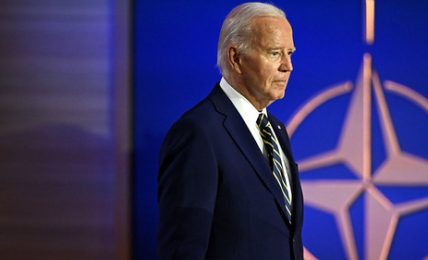OpenAI CEO Sam Altman has consolidated his grip on power at the tech firm that briefly ousted him last fall by striking a deal with Apple to incorporate artificial intelligence into its products, according to a report.
The 39-year-old tech mogul has pushed out his rivals from the company’s board and is moving full steam ahead with plans to overhaul its nonprofit structure.
With the Apple deal, Altman is now hoping bring the company closer to its goal of one day replacing Google as the iPhone maker’s search partner for its Safari web browser, according to The Information.
Altman’s ambitions extend beyond OpenAI.
He is working on building several factories that will make AI chips.
Altman is also partnering with former Apple designer Jony Ive on a personal device that would be powered by AI.
But Altman’s plans face potential roadblocks.
Microsoft, which has invested billions of dollars in OpenAI, is reportedly concerned about how the deal with Apple could affect its own AI ambitions.
Altman recently held a meeting with Microsoft CEO Satya Nadella to discuss Microsoft’s concerns, according to The Information.
Altman has also been at loggerheads with some of his employees who have publicly questioned his commitment to install safeguards and mitigate risks associated with AI-powered technology.
Altman received some bad publicity recently after actress Scarlett Johansson blasted OpenAI for using a voice that sounded similar to hers for a new ChatGPT feature — this after she refused the firm’s overtures to use her voice.
OpenAI was founded by Altman, Elon Musk and other tech luminaries in December 2015.
It initially began as a nonprofit, but a for-profit arm was added in 2019 in order to help it fund its research.
Musk left OpenAI in 2018 after he wanted to merge the entity with his electric car maker, Tesla, effectively giving him overall control.
Since its launch of ChatGPT in late 2022, OpenAI’s valuation has soared to around $90 billion.
But now Altman has been discussing how to make OpenAI a conventional company, according to the report.
Altman is weighing whether to turn OpenAI into a for-profit corporation or to emulate other AI developers such as Anthropic and Musk’s xAI, which are listed as for-profit benefit corporations.
For-profit benefit corporations are legally permitted to prioritize having a positive impact on society over its obligations to shareholders.
These kinds of companies are structured in a way that shields them from minority shareholders who could sue for making decisions that don’t necessarily benefit shareholders.
Making OpenAI a for-profit company would enable Altman to attract up to $100 billion in capital that he says is needed to fund a mega-data center that would house a super-computer with millions of specialized servers chips that would power its technology.
Last November, Altman was fired as CEO by several board members who banded together to oust the executive for allegedly lying to the company.
The decision caused an uproar as hundreds of employees signed onto a letter threatening to resign if Altman’s dismissal wasn’t reversed.
Altman and co-founder Greg Brockman, who opposed the firing and resigned in protest, were reinstated and several board members who took part in the coup — Ilya Sutskever, Helen Toner and Tasha McCauley — were ousted.
Toner alleged in an interview earlier this week that Altman repeatedly lied to the board about everything from AI safety to the launch of ChatGPT.
She revealed that the board only learned about ChatGPTs launch after it had already occurred.
When ChatGPT came out, November 2022, the board was not informed in advance about that, Toner told host Bilawal Sidhu on The TED AI Show in an episode airing Tuesday. We learned about ChatGPT on Twitter.
OpenAI board director Bret Taylor pushed back on Toners claims in a statement shared with the podcast.
The statement noted that the law firm Wilmer Hale had conducted a review of the circumstances surrounding Altmans firing and cleared him of wrongdoing.
We are disappointed that Ms. Toner continues to revisit these issues, the statement said.
Additional Reporting by Thomas Barrabi

